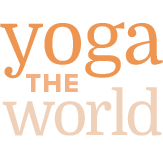Learning to listen to me
I was barely in my mid-twenties when I graduated from business-school and got offered a job as an oil-trader in a large fossil fuel company. I was desperate for a job, which goes some way to explain why I accepted it. To be honest, I hadn’t thought too much about fossil fuel dependency at that point, but I did know that being an oil-trader wasn’t for me. I just needed the paycheck, and so said yes.
Thing is, I knew exactly why I got offered the job, and why it was such a misfit from the start.
The hiring process of that particular fossil fuel company involved being flown to a 3-day Hunger-Games style conference with dozens of other recent graduates to compete for a limited number of jobs. We did multiple competitive group interviews, had formal dinners with board members, and, in the most memorable event for me, had to work in teams to mock-trade orange, water, and sugar, to produce orange juice for profit.
I absolutely hated this exercise, even as a set-up. It felt useless and deeply flawed (see: privatized water and added sugar in fruit juice, hello!). And above all, its entire logic was based on manufactured urgency. The fictitious prices kept fluctuating, flashing on a paper scroll supposed to mimic the screen on the trading floor. As a team, we had to buy and sell our oranges, water, and sugar, based on gut feelings and what we saw other teams doing. In short: supply-and-demand 101. We had 30 minutes.
I remember thinking to myself: right. This will take about the same time as a dentist visit. It will be equally painful. But the only way out is through. And so I ignored my gnawing gut and bought and sold with abandon. I also ignored the other members in my group, because there really was no time to consult. I even ignored the paper scroll, though we did make a lot of fictitious money even so. The company executives were impressed. “You clearly enjoyed that so much,” I remember someone saying to me. If only you knew, I thought, if only you knew.
At the time, I had no words for why everything about this process was wrong. It didn’t feel right in my body, sure, but I had never heard of “boundaries” and wouldn’t have known how to enforce one if I had. I needed a job. I was wearing my one good suit and going back to a mattress-on-the-floor room in south London afterwards which I knew I could only afford for about 2 months longer without an income. It was what it was.
Something will come along, I thought. Something I really want to do.
And it did.
The very next day I got offered an entry-level position in an advertising agency doing strategy work. I was elated. The fossil fuel company not so much. I had a pretty difficult phone conversation with the hiring manager. However, all in all, it was an easy shift to make: no contracts had been signed yet, so I didn’t feel like I was really letting anyone down. I spent 5 years in advertising, learning skills and processes I would go on to use, almost daily, in the not-for-profit world.
Over time, I learned not to ignore my gut, my peers, my inner North Star. That is how I ended up in the human rights field. It was not exactly fate. It was a process of learning to listen to who I already was.

